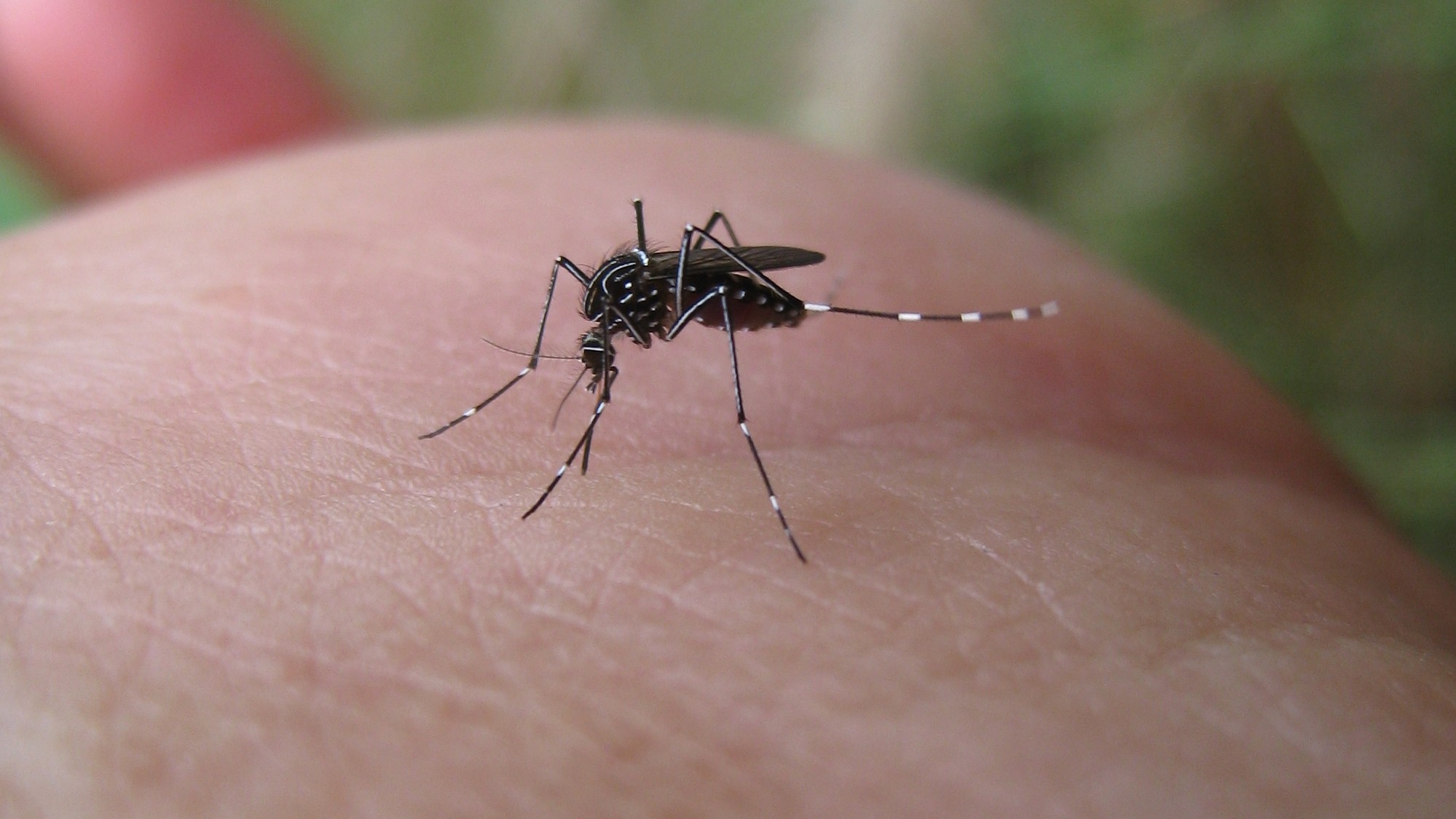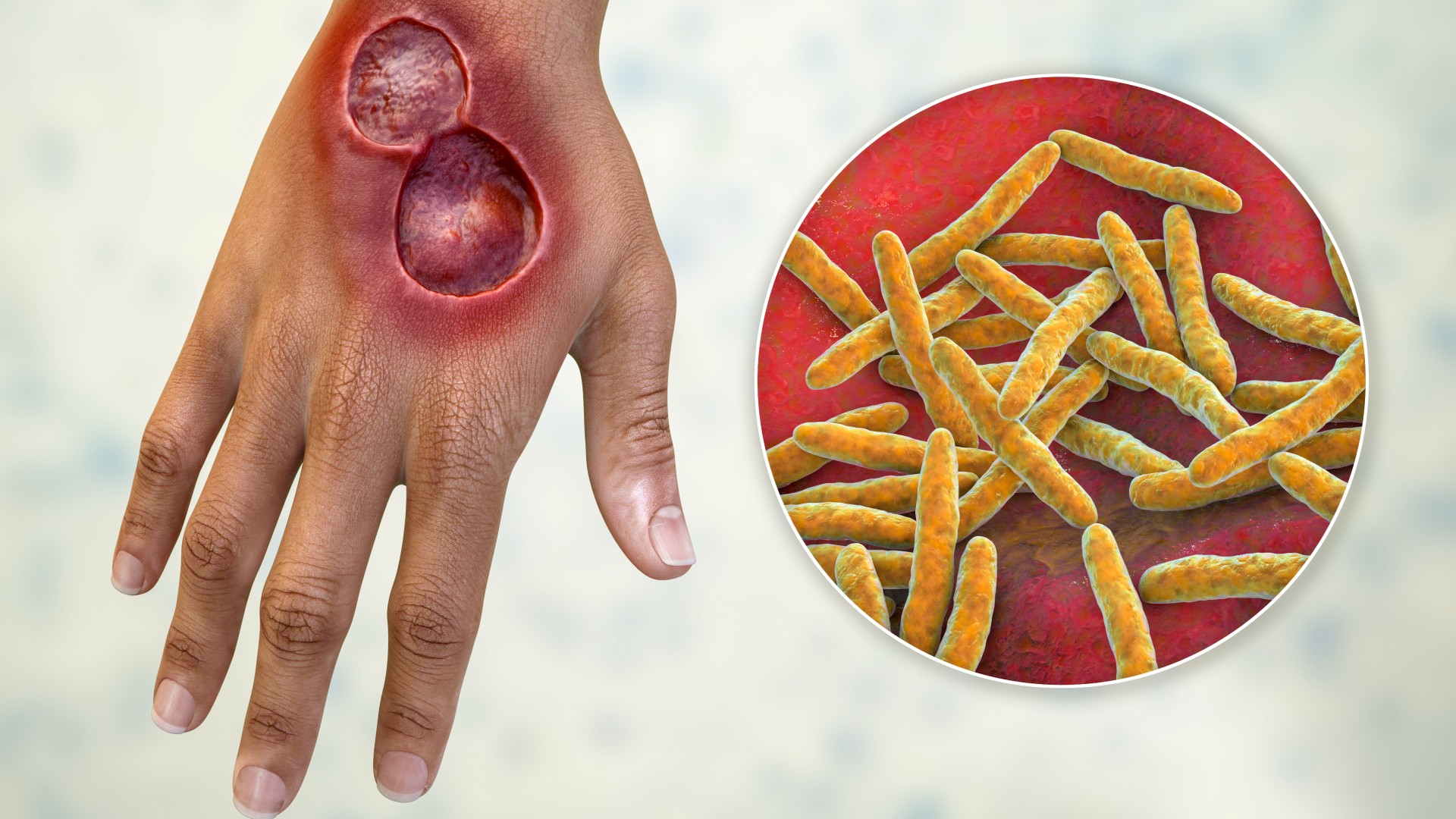Decades-long mystery of flesh-eating, ulcer-causing bacteria solved
Mosquitoes are responsible for transmitting the flesh-eating bacterium behind "Buruli ulcer" to humans, new research suggests.

Get the world’s most fascinating discoveries delivered straight to your inbox.
You are now subscribed
Your newsletter sign-up was successful
Want to add more newsletters?

Delivered Daily
Daily Newsletter
Sign up for the latest discoveries, groundbreaking research and fascinating breakthroughs that impact you and the wider world direct to your inbox.

Once a week
Life's Little Mysteries
Feed your curiosity with an exclusive mystery every week, solved with science and delivered direct to your inbox before it's seen anywhere else.

Once a week
How It Works
Sign up to our free science & technology newsletter for your weekly fix of fascinating articles, quick quizzes, amazing images, and more

Delivered daily
Space.com Newsletter
Breaking space news, the latest updates on rocket launches, skywatching events and more!

Once a month
Watch This Space
Sign up to our monthly entertainment newsletter to keep up with all our coverage of the latest sci-fi and space movies, tv shows, games and books.

Once a week
Night Sky This Week
Discover this week's must-see night sky events, moon phases, and stunning astrophotos. Sign up for our skywatching newsletter and explore the universe with us!
Join the club
Get full access to premium articles, exclusive features and a growing list of member rewards.
Scientists have finally solved the 80-year-old mystery of how a flesh-eating, ulcer-triggering bacterium gets into humans: via the bite of a mosquito.
Once in the body, the microbe, Mycobacterium ulcerans, releases a toxin that destroys skin and soft tissue, causing it to swell and form slow-growing ulcers. The infection is known as Buruli ulcer, in reference to these sores.
First discovered in Australia in the 1930s, Buruli ulcer has been reported in at least 33 countries worldwide, primarily in tropical and subtropical regions. In 2021, there were 1,370 new cases worldwide, according to the World Health Organization. The disease is uncommon in the U.S., but cases have occasionally been reported in travelers returning from countries where the condition occurs.
Buruli ulcer can be treated with antibiotics if it's diagnosed early. However, scientists didn't previously know how the bacteria spread from the environment to humans, which has made outbreaks difficult to control. They suspected that mosquitoes were to blame, but this had not been confirmed.
Now, researchers in Australia have clear evidence that mosquitoes are responsible for spreading M. ulcerans to people. The team reported their findings in a new study, published Tuesday (Jan. 23) in the journal Nature Microbiology.
Related: No one knows how to stop this 'flesh-eating' disease in Australia
Now that the decades-long mystery is solved, scientists and public health experts "can now use well-established mosquito control and bite prevention measures to stop Buruli ulcer," Tim Stinear, co-senior study author and director of the World Health Organization Collaborating Centre for Mycobacterium ulcerans, told Live Science in an email.
Get the world’s most fascinating discoveries delivered straight to your inbox.
It's well known that mosquitoes spread many other diseases — including dengue, West Nile fever and malaria — to humans. But these diseases are caused by viruses and parasites, not by bacteria. Fleas, ticks and lice spread various bacterial diseases to humans, but there have been no precedents for this type of bacterium to be spread via mosquitoes, Stinear said.
Between 2016 and 2021, Stinear and colleagues caught and screened more than 65,000 mosquitoes in the Mornington Peninsula region of southeastern Australia; they focused on an important disease-transmitting mosquito species in the region called Aedes notoscriptus. This region is located south of Melbourne and has consistently reported human cases of Buruli ulcer since 1998.
Recently, there's been an uptick in the infection in southeastern Australia — on Jan. 18, Victoria's local government reported that 2023 saw their highest number of recorded human cases, at 363 cases.
Scientists already knew Buruli ulcer was a zoonotic disease, meaning an illness that is caused by germs that are somehow passed between animals and humans. Possums, such as Pseudocheirus peregrinus — not to be confused with opossums, including Didelphis marsupialis — are a major reservoir of M. ulcerans in southeastern Australia, but it was uncertain how M. ulcerans got from the animals into humans.
Field surveys conducted in Victoria had hinted that mosquitoes may have been responsible for transmission in past outbreaks in the state. Meanwhile, observational studies in Cameroon suggested that protective measures against mosquito bites, such as using a bed net, could reduce the risk of infection.
To gather experimental evidence to support the idea that mosquitoes spread M. ulcerans, the researchers collected bacterial samples from the feces of local possums and from clinical samples from human Boruli cases. They sequenced the genomes of these samples and checked them against samples from the mosquitoes they'd screened.
They discovered that, across all the samples, the genetic makeup of M. ulcerans was identical. In addition, the human infections overlapped where the mosquitoes were collected on a map of the region. Analysis of the blood meals of the mosquitoes also confirmed that they'd fed on both humans and possums, suggesting that these mosquitoes were likely spreading the bacterium from possums to humans via their bites.
The study was limited to Australia and, therefore, focused only on the disease transmission dynamics relevant to the region, in terms of the animal host and mosquitoes involved. Regardless, the new findings have broader relevance for controlling the spread of Buruli ulcer, the researchers argue.
"Mosquito surveillance with M. ulcerans screening, coupled with mosquito control and public health messaging to avoid mosquito bites are practical interventions that would be expected to reduce the incidence of human Buruli ulcer," they wrote in their paper.
This article is for informational purposes only and is not meant to offer medical advice.
Ever wonder why some people build muscle more easily than others or why freckles come out in the sun? Send us your questions about how the human body works to community@livescience.com with the subject line "Health Desk Q," and you may see your question answered on the website!

Emily is a health news writer based in London, United Kingdom. She holds a bachelor's degree in biology from Durham University and a master's degree in clinical and therapeutic neuroscience from Oxford University. She has worked in science communication, medical writing and as a local news reporter while undertaking NCTJ journalism training with News Associates. In 2018, she was named one of MHP Communications' 30 journalists to watch under 30.
 Live Science Plus
Live Science Plus






